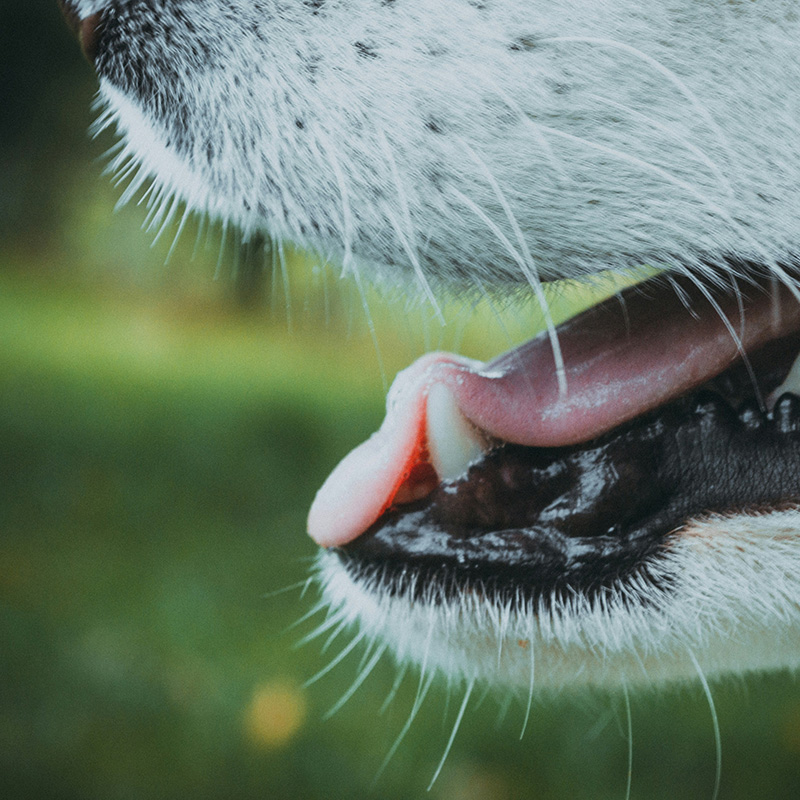Importance of Pet Dental Care In Cats & Dogs
 Many pet owners focus on their furry friend's diet, exercise, and vaccinations, but dental care is just as important. Just like humans, cats and dogs can suffer from a range of dental problems, including plaque build-up, gum disease, and tooth loss. Poor dental hygiene can also lead to more serious health issues such as infections that affect the heart, liver, and kidneys.
Many pet owners focus on their furry friend's diet, exercise, and vaccinations, but dental care is just as important. Just like humans, cats and dogs can suffer from a range of dental problems, including plaque build-up, gum disease, and tooth loss. Poor dental hygiene can also lead to more serious health issues such as infections that affect the heart, liver, and kidneys.
Regular dental care helps prevent these issues and ensures your pet stays happy and healthy. A pet with clean teeth and a healthy mouth will not only enjoy their food more but will also be at a lower risk of developing painful dental conditions.
Signs of Dental Disease in Cats & Dogs
Dental disease is common in pets, with many cats and dogs showing signs of oral health issues by the time they are three years old. Here are some key signs to watch out for:
- Bad breath – A foul smell coming from your pet's mouth can be an early sign of dental disease.
- Difficulty eating – If your pet is dropping food, chewing on one side, or avoiding certain foods, it could indicate dental pain.
- Red or swollen gums – Inflammation in the gums can be a sign of gingivitis, which, if left untreated, can progress to periodontal disease.
- Yellow or brown tartar build-up – A visible layer of tartar on the teeth indicates the presence of bacteria and plaque.
- Pawing at the mouth or excessive drooling – These behaviours can indicate discomfort caused by dental issues.
- Loose or missing teeth – If your pet's teeth are falling out or seem loose, they may have advanced periodontal disease.
If you notice any of these symptoms, it's important to book an appointment with us as soon as possible.
How to Keep Your Dog's and Cat's Teeth Clean at Home
Preventing dental disease starts at home, and there are several ways you can keep your pet's teeth clean:
Brushing Your Pet's Teeth
Brushing your pet's teeth is one of the most effective ways to prevent plaque and tartar build-up. Use a pet-friendly toothbrush and veterinary-approved toothpaste, as human toothpaste can be toxic to animals. Start slowly, allowing your pet to get used to the process, and aim to brush their teeth at least a few times a week.
Dental Chews and Treats
There are a variety of dental chews and treats designed to help clean your pet's teeth while they chew. These can be a great supplement to regular brushing, helping to reduce plaque and freshen their breath.
Dental Diets
Some specially formulated pet foods help to clean teeth by reducing plaque and tartar build-up. Speak to your vet about whether a dental diet might be suitable for your cat or dog.
Regular Vet Check-Ups
Routine dental check-ups with us are crucial for identifying any issues early. We may recommend a professional dental cleaning if necessary to remove stubborn tartar and prevent dental disease.
Water Additives
Some pet-friendly water additives may help to reduce plaque and freshen breath. These can be an easy way to support your pet's oral hygiene alongside brushing and dental chews.
By taking proactive steps at home and visiting your vet regularly, you can help maintain your pet’s dental health, ensuring they lead a happy and pain-free life.
If you have any concerns about your pet’s dental health or need advice on the best dental care routine, don’t hesitate to contact us. Our team is here to help keep your pet’s teeth in top condition!
-
Previous
-
Next
